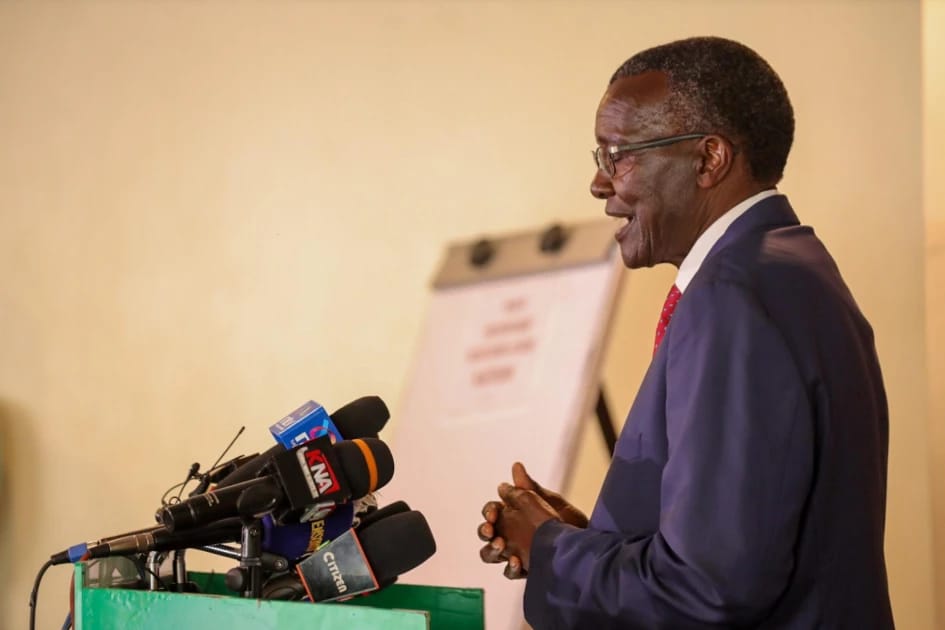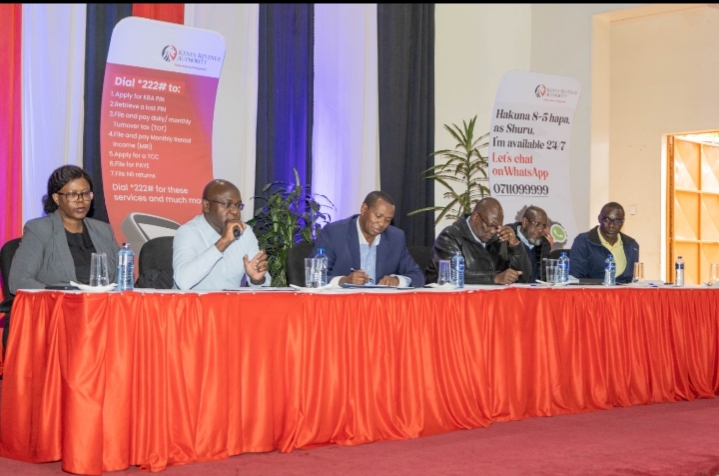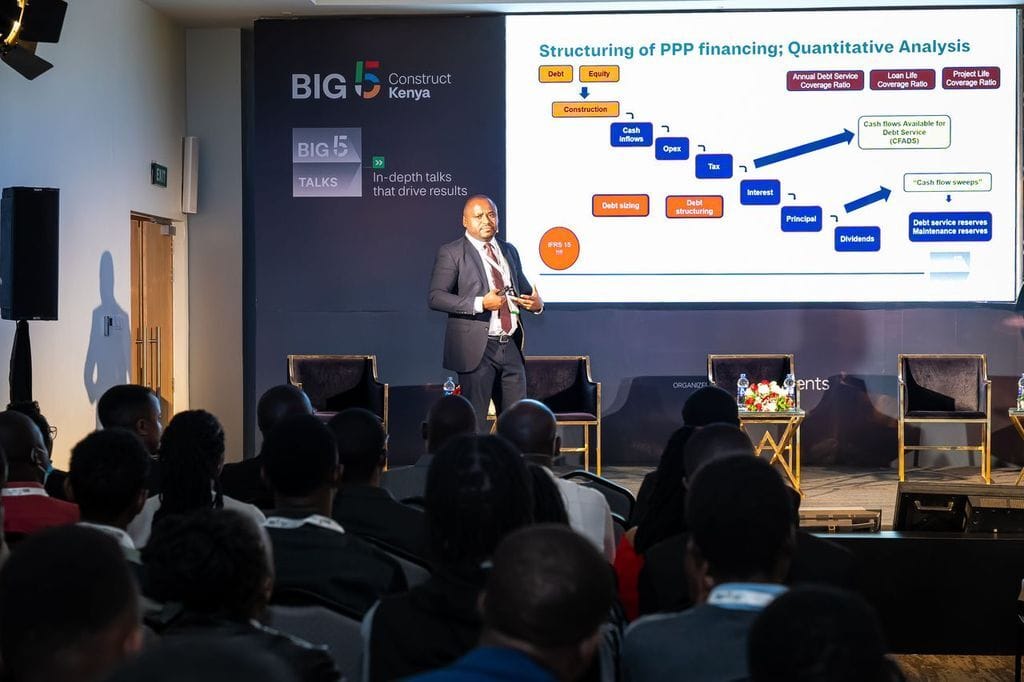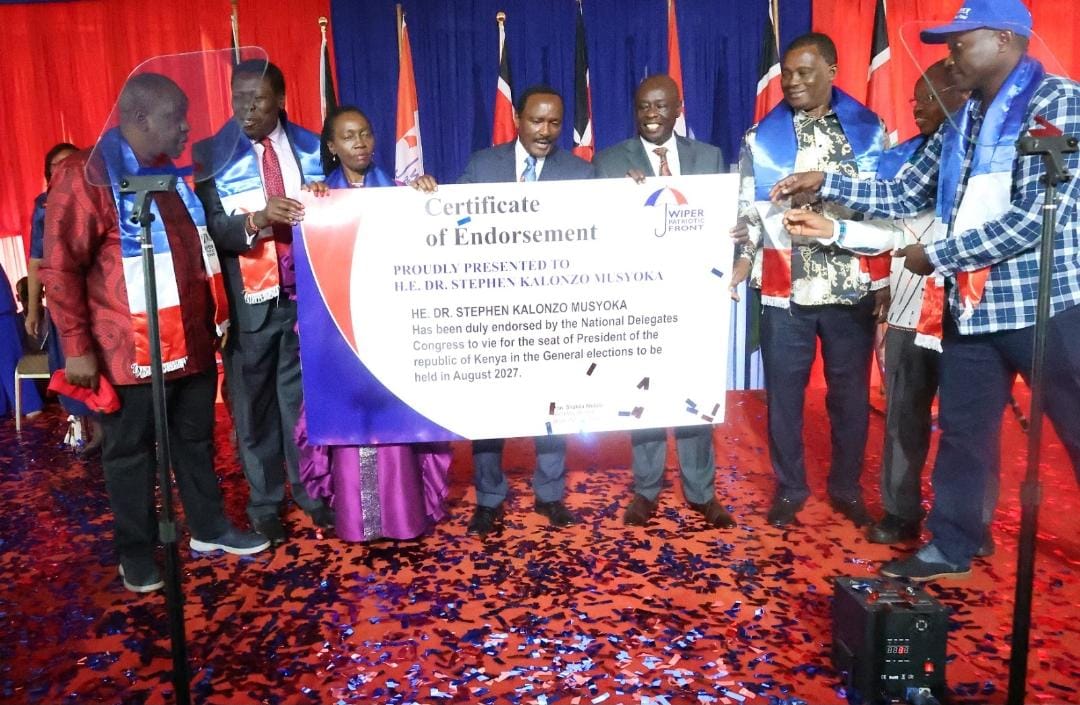Maraga Criticises Ruto Over “Unconstitutional” Laws, Warns of Threat to Kenya’s Sovereignty

Former Chief Justice (Emeritus) David Maraga addresses a press conference at the PanAfric Hotel in Nairobi on October 21, 2025, where he criticised the signing of several new laws by President William Ruto, terming them unconstitutional and a threat to Kenya’s sovereignty.
Nairobi, Tuesday, October 21st,2025 –Former Chief Justice David Maraga has accused President William Ruto’s administration of undermining Kenya’s Constitution and eroding public freedoms after the signing into law of eight controversial Bills, terming the move a betrayal of the nation’s sovereign will.
Speaking at the PanAfric Hotel in Nairobi, Maraga said the signing of the laws among them amendments to the Computer Misuse and Cybercrimes Act and the Privatisation Act represents a mockery of the ideals that the late Prime Minister Raila Odinga fought for and of the 2010 Constitution that we swore to protect and implement.
He began his remarks by conveying condolences to the family of the late former Prime Minister Raila Odinga, describing him as an icon, a Pan-Africanist and a fighter for social justice.
> “We send our deepest condolences to Mama Ida Odinga and the entire family of Right Honourable Raila Amolo Odinga, as well as to the Kenyan people on the demise of an icon,” he said, before inviting a moment of silence in his honour.
Maraga questioned the timing of the legislative assent, noting that at exactly the same time the nation was grappling with news of Odinga’s demise, President Ruto was in State House signing into law, not one but eight Bills, some of which are quite draconian.
The laws that were signed include the Computer Misuse and Cybercrimes (Amendment) Act, the Privatisation Act, the Land (Amendment) Act, the National Land Commission (Amendment) Act, the Wildlife Conservation and Management (Amendment) Act, the National Police Service Commission (Amendment) Act, the Air Passenger Service Charge (Amendment) Act, and the Virtual Asset Service Providers Act.
Maraga singled out the Computer Misuse and Cybercrimes (Amendment) Act and the Privatisation Act as particularly threatening to national sovereignty and fundamental rights, saying they expose the country to executive overreach and economic capture.
Concerns Over Free Speech and Media Freedom
The former Chief Justice said the cybercrime law seeks to control and crush political dissent and protests under the guise of fighting cybercriminals.
“This unconstitutional Committee can order the closure of any website, blog, mobile app, Facebook, X, TikTok, YouTube, or Instagram account for allegedly promoting ‘illegal activities.’ This expansion of powers glaringly lacks judicial oversight,” he said.
He argued that the amendments directly contravene Articles 33 and 34 of the Constitution, which guarantee freedom of expression and media, as well as Articles 47 and 50 on fair administrative action and hearing.
Maraga further noted that there was limited public participation in the passage of the amendments, saying only three written memoranda were received, all opposed to the changes.
“Unsurprisingly, MPs yet again ignored the views they received, even from the relevant ministry. And the President followed suit in signing the amendments into law,” he said, terming them “unconstitutional, null and void.”
He expressed support for ongoing legal efforts to challenge the laws, urging citizens to unite in demanding accountability.
“We shall not allow freedoms of speech, media, fair hearing and fair administrative action to be buried silently with Raila Odinga. Kenyans must send home this crop of unaccountable MPs who have become voting robots programmed by the Executive,” Maraga added.
Privatisation Bill ‘A Tool to Auction the Country
Turning to the Privatisation Act, Maraga accused the government of outright robbery, warning that it hands the Treasury Cabinet Secretary unchecked powers to privatise public entities without adequate oversight.
“It grants the CS Treasury power to create a privatisation programme which may include an unlimited number of public entities earmarked for sale,” he said.
He added that Parliament would have only 60 days to approve such a programme, which would remain valid for eight years, without requiring disclosure of the valuation of assets being sold.
“The most outrageous part is that valuation information is not mandatory. If they sell strategic assets to foreigners or to themselves through proxies, Kenyans will not know,” Maraga warned.
He also said that the new law effectively allows the government to privatise national assets unchecked until 2032, describing it as a quick-fire sale of public property to crony capitalists.
“In its characteristic, inexplicable and bottomless greed, Ruto’s government plans to exit when it has fully auctioned the country’s treasured public entities,” he claimed.
Call to Defend National Sovereignty
Maraga accused the Kenya Kwanza administration of exposing the country to economic vulnerability amid rising public debt, noting that Kenya is borrowing over Sh5 billion weekly.
“The world is scrambling for Africa’s minerals, ports, and lands. Why make our nation vulnerable? Who do you serve?” he posed.
He called for civic unity to defend the Constitution and the nation’s sovereignty, reminding leaders that sovereignty belongs to the people of Kenya as stated in Article 1 of the Constitution.
“The power lies with us the sovereign people of Kenya. Not Parliament, not the Executive, not foreign investors,” he said.
Maraga’s remarks come amid growing debate over the scope of executive powers and the protection of civil liberties. His statement adds a strong judicial voice to mounting criticism from civil society groups and opposition figures who argue that recent legislation is rolling back constitutional gains.





